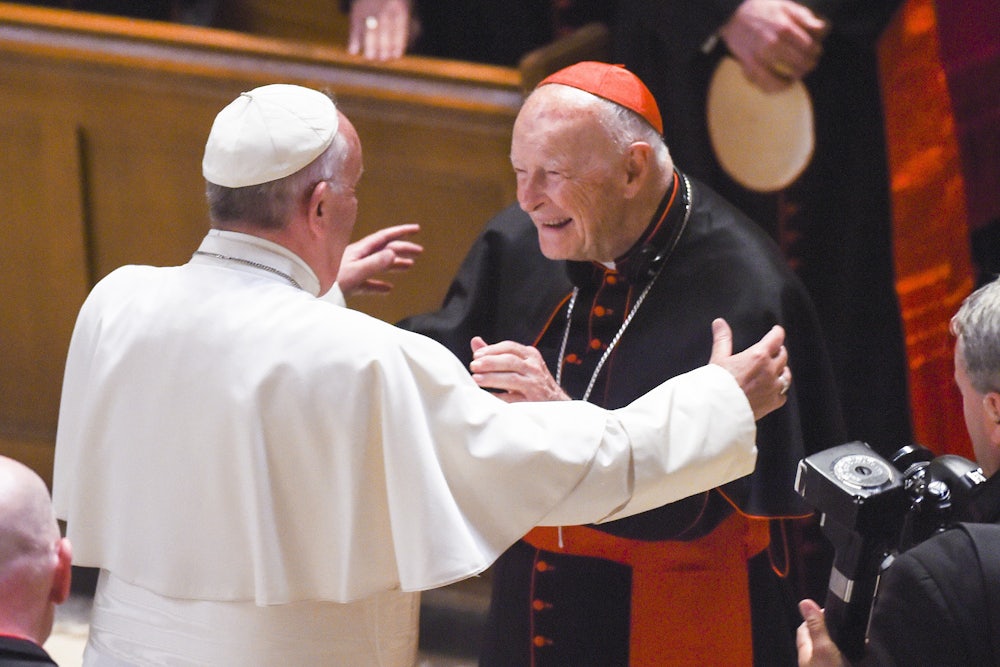By any reasonable standards, the resignation on Saturday by Theodore McCarrick from his status as cardinal is a major news story. McCarrick had been a leader in the church for decades and his resignation comes after reports of alleged sexual predation against a teenager and young adults under his care. As with other #MeToo stories, this scandal implicates not just the alleged harasser but also a major institution, since reports about McCarrick’s behavior circulated in the Catholic hierarchy going back to at least 1994. At the very least, many other church leaders were complicit in McCarrick continuing to thrive for decades after the first report.
“For a cardinal to lose his rank is very rare in the annals of the Catholic Church,” The Economist notes. “To find another instance of a cardinal being obliged to doff his red hat, church historians had to go back more than 90 years, to the case of a certain Cardinal Billot in France who got into trouble not through sexual misdemeanours but for association with an extreme right-wing movement.”
Outside of the Catholic press, the McCarrick scandal isn’t making much news. Writing in The New York Times, columnist Ross Douthat suggests several factors at work, including “fatigue from the church’s scandals and so many non-Catholic sex abuse stories since, the fact that Pope Francis is more popular with the press than his predecessors and thus a less inviting target, a discomfort with stories that might involve the outing of prominent clerics, the oxygen-devouring impact of the Trump presidency.” Douthat also thinks the relative silence of the press shows that the Catholic hierarchy has lost its moral standing, so that news about a cardinal no longer feels urgent.
